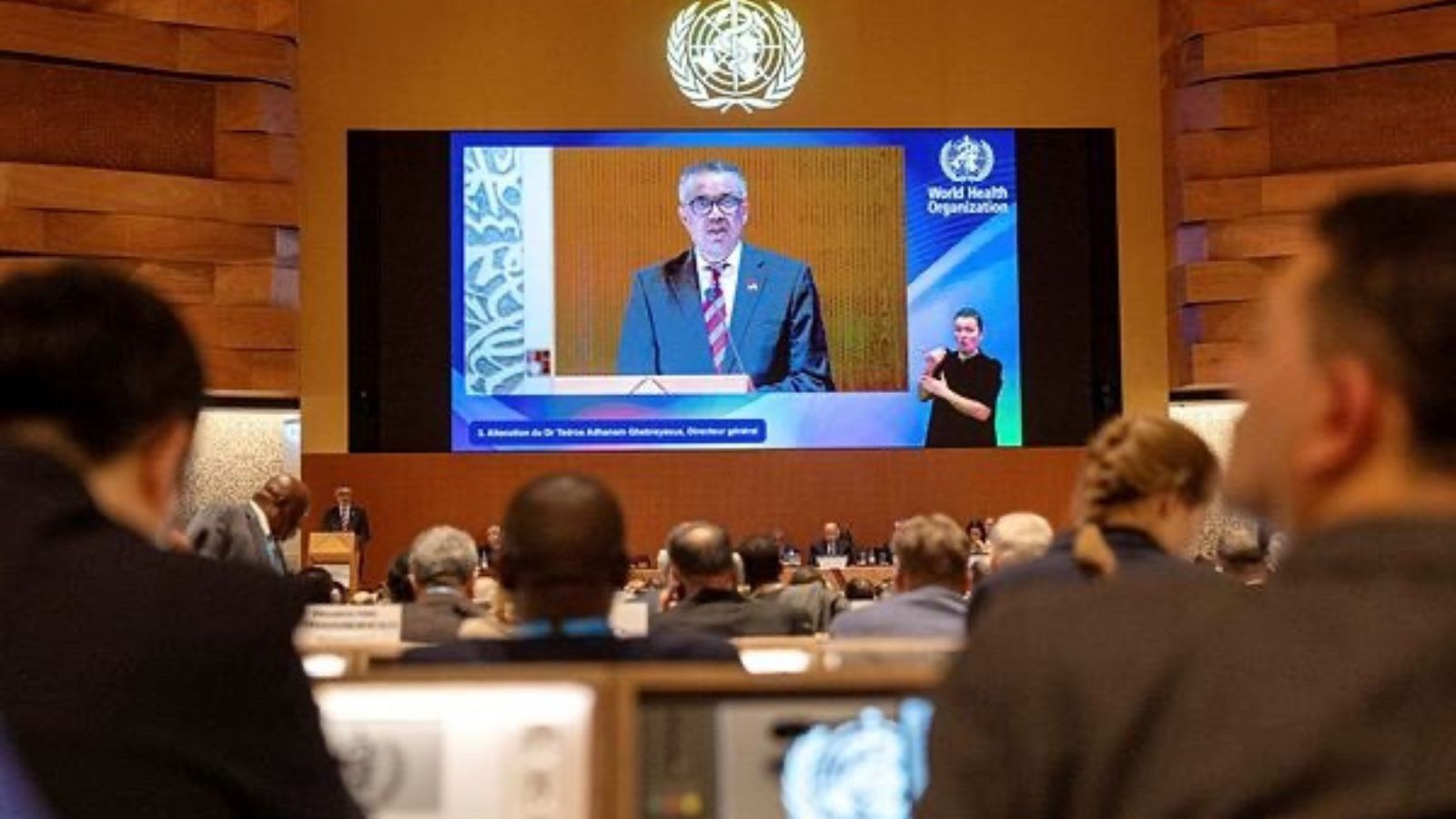WHO Adopts Landmark Pandemic Agreement Amid Ongoing Global Health Challenges











2025-05-21T02:58:38Z

In a significant milestone for global health governance, the World Health Organisation (WHO) announced on Tuesday the adoption of the world’s first pandemic agreement, following three years of intense negotiations. This groundbreaking decision took place during the annual meeting of the inter-governmental body where member states gathered to discuss crucial health issues. The formal approval of the agreement was secured a day earlier through a voting process, which saw an overwhelming majority with 124 votes in favor, none against, and 11 abstentions.
The historic agreement sets forth essential principles aimed at enhancing international coordination and strengthening the global health framework dedicated to pandemic prevention, preparedness, and response. One of the primary objectives of the agreement is to ensure equitable and timely access to critical health resources, including diagnostics, vaccines, and therapeutics. This focus has emerged as a direct response to the disparities witnessed during the COVID-19 pandemic, where wealthier nations amassed surplus vaccines while many low-income countries struggled to secure adequate supplies for their populations.
Dr. Tedros Adhanom Ghebreyesus, the Director-General of WHO, heralded the adoption of this agreement as a monumental victory for public health. He stated, “The agreement is a victory for public health, science, and multilateral action. It will ensure we, collectively, can better protect the world from future pandemic threats. It is also a recognition by the international community that our citizens, societies, and economies must not be left vulnerable to suffer losses like those endured during COVID-19. The world is safer today thanks to the leadership, collaboration, and commitment of our member states to adopt the historic WHO Pandemic Agreement.”
The creation of this agreement can be traced back to the formation of the Intergovernmental Negotiation Body in December 2021, which followed the devastating second wave of COVID-19 and was established during the second-ever special session of the World Health Assembly. After 13 rounds of discussions — nine of which required extensions due to protracted negotiations — the draft agreement was finalized in April 2023.
One of the primary reasons for the extended negotiation timeline was the presence of contentious issues, including intellectual property rights and the sharing of pathogens. In its current form, the agreement outlines a pathogen access and benefit-sharing system, along with a coordinated financial mechanism. This framework is designed to assist nations in implementing concrete measures that will enhance the preparedness and resilience of health systems, while also proactively preventing future pandemics. Notably, the agreement adopts a One Health approach, which emphasizes the interconnectedness of human, animal, and environmental health.
Another significant component of the agreement is its commitment to developing a geographically diverse research and development capacity. This will facilitate the transfer of technology, knowledge, and skills necessary for the production of pandemic-related health products. The COVID-19 pandemic starkly revealed the pitfalls of vaccine development and manufacturing being concentrated in a limited number of countries, which subsequently led to access challenges for many nations.
Despite these advancements, there were concerns regarding the preservation of national sovereignty within the agreement. To address these apprehensions, the agreement explicitly states, “Nothing shall be interpreted as providing the Secretariat of the World Health Organisation, including the Director-General of the World Health Organisation, any authority to direct, order, alter or otherwise prescribe the national and/or domestic law, as appropriate, or policies of any Party, or to mandate or otherwise impose any requirements that Parties take specific actions, such as ban or accept travellers, impose vaccination mandates or therapeutic or diagnostic measures or implement lockdowns.”
However, the adoption of this pivotal agreement may face challenges, particularly in light of the absence of the United States from the WHO, following its withdrawal in January. This exit raises concerns about potential funding deficiencies for the implementation of the agreement and means that major U.S. pharmaceutical companies are not obliged to share crucial information or resources.
 George Bennett
George Bennett
Source of the news: The Indian Express